The Phenom II X4 810 & X3 720: AMD Gets DDR3 But Doesn't Need It
by Anand Lal Shimpi on February 9, 2009 12:00 AM EST- Posted in
- CPUs
SYSMark 2007 Performance
Our journey starts with SYSMark 2007, the only all-encompassing performance suite in our review today. The idea here is simple: one benchmark to indicate the overall performance of your machine.
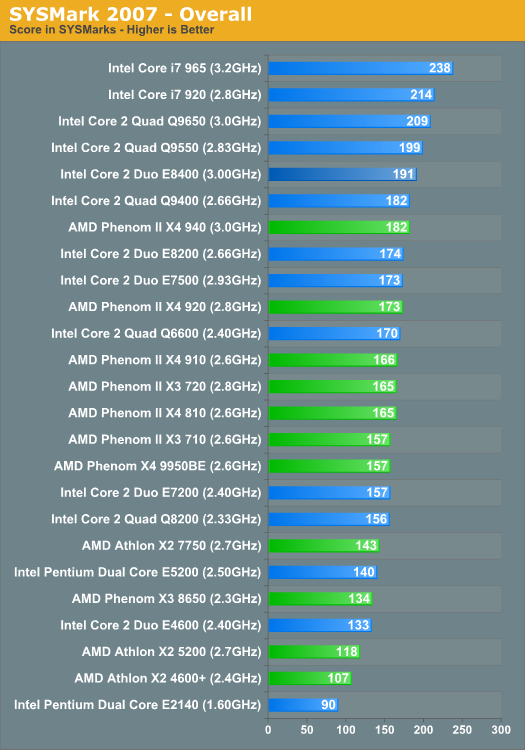
SYSMark is a great tool for showing off the fact that most applications are still not very well threaded and can't take advantage of more than two cores. Obviously if you're buying for the future then you'd want more cores, but today most users won't see a real benefit. The proof is in the pudding: look at the Phenom II X3 720 vs. the Phenom II X4 910 - the two offer identical performance. Sure the X4 910 has a larger L3 cache and the X3 720 has a faster clock speed, but the fourth core offers no real performance advantage.
Against to its Intel competition, the Phenom II X3 720 falls short of the Core 2 Duo E7500 and the E8400.
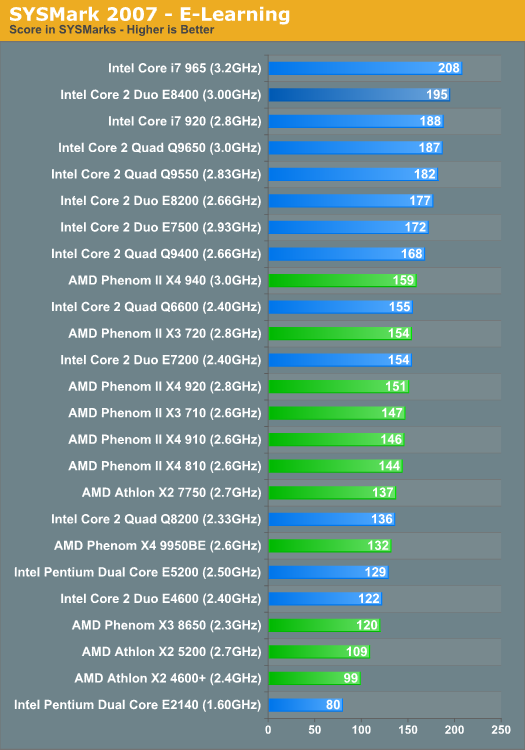
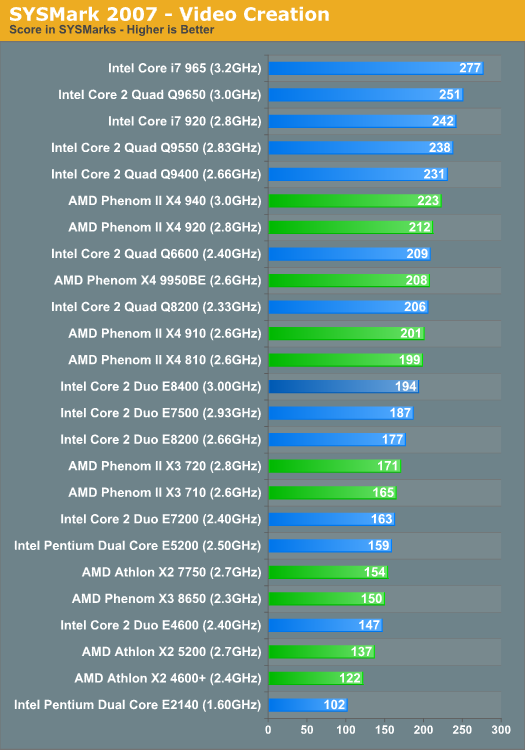
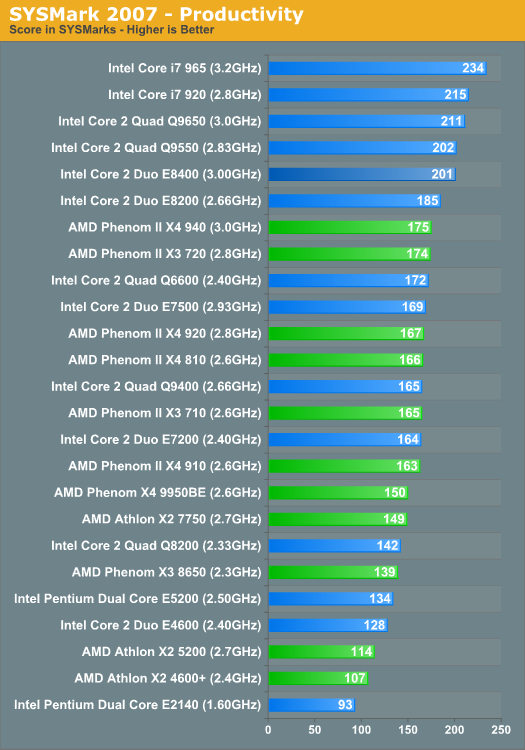
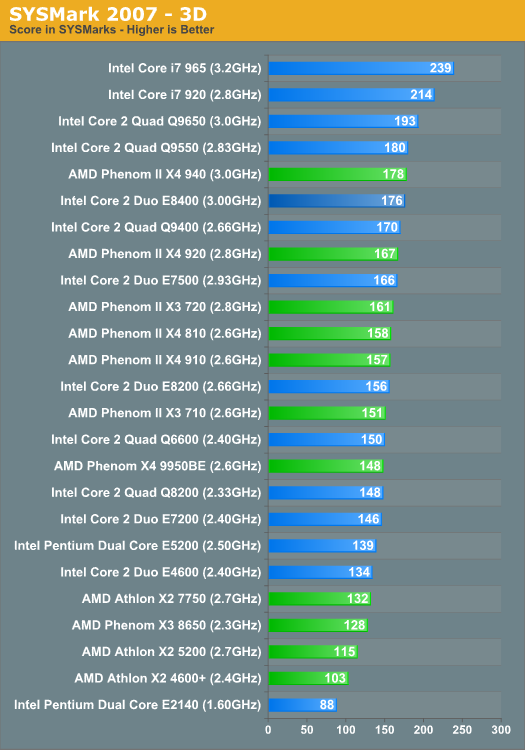










77 Comments
View All Comments
7Enigma - Monday, February 9, 2009 - link
Ditto the power consumption at OC'd levels. I always get annoyed to see these fantastic OC results but then fail to see whether we've doubled the power consumption. It would certainly allow us to see a potential benefit if one or the other uses significantly less power under OC load conditions.Gary Key - Monday, February 9, 2009 - link
We will have power consumption and temps up tomorrow for the OC results along with a few benchmarks. It was difficult to get stable (true) volt readings with the X4 810 installed, so I spent my weekend with the DMM on the boards.Kaleid - Monday, February 9, 2009 - link
Great! Possible to also add difference with non-overclocked and overclocked power consumption at idle?7Enigma - Monday, February 9, 2009 - link
At the wall (total system) or just for the CPU? Do you mean the total system power was fluctuating with the 810? That seems really really wierd.Gary Key - Monday, February 9, 2009 - link
The power was fluctuating on the board at the Core VID side. I should have a BIOS spin tonight to fix it. The 720 was perfect but the 810 had a few problems that have been identified now.7Enigma - Monday, February 9, 2009 - link
*weird, please give us an edit function.OCedHrt - Monday, February 9, 2009 - link
Interestingly, the 810 vs 910, there is no real performance difference outside the margin of error. In some cases, the 810 is faster and in some, the 910 takes the lead. Something I noticed though is that the 810 is faster than the 910 at more times, and faster by a larger amount (~3% when it is faster) as well. Seems like the reduced cache does not actually hamper performance.Moorbo - Friday, April 24, 2009 - link
For most applications it seems you're correct that the smaller cache makes little difference. However if you look at the gaming performance the 2MB/core L3 cache of the 720 and 710 clearly makes a big difference despite their slower clock and lack of an additional core. What would the numbers look like with only two cores and 3MB/core and a higher clock?johnsonx - Monday, February 9, 2009 - link
indeed, the 710 is also often faster than the 910, but usually slower than the 810.I'm a bit surprised we the readers have to thumb through all the benchmark charts to see the 710/810/910 comparison. 3 Phenom II's at the same speed, one 'standard', one with less cache and one with a missing core; that is something AT should have dedicated a page to.
stmok - Monday, February 9, 2009 - link
Yeah, I noticed that as well. It looks like 4MB L3 cache is sufficient with Phenom II. (Any less, it'll start hurting...Any more, you're just wasting silicon space).